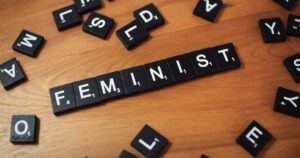Luigi Mangione’s Monopoly Manifesto and 286 Theory

[ad_1]
The opinions expressed in this article are the writer’s own and do not reflect the views of Her Campus.
This article is written by a student writer from the Her Campus at UCF chapter.
Content warning: This article mentions topics of violence and death.
The morning of Dec. 4 sparked a highly publicized front against America’s healthcare system. Leading that front is 26-year-old Luigi Mangione, the primary murder suspect in the assassination of UnitedHealthcare’s CEO, Brian Thompson.
Mangione, an Ivy League graduate with a bachelor’s and master’s in computer engineering, was arrested on Dec. 9 after being recognized in a McDonald’s in Pennsylvania. At the time of the arrest, he had undeniable evidence on hand: fake IDs, a gun, and a three-page outline expressing his hatred for the healthcare industry and corporate America.
In the five days before Mangione’s arrest, the masked UHC shooter had quickly obtained a massive fan base. The striking amount of support sent a clear message: Americans are unhappy with the nation’s healthcare system.
According to a recent poll by Emerson College, upwards of 41% of young voters aged 18 to 29 and 23% of those between 30 and 39 found the shooting “acceptable.” Aside from a minor increase after age 59, the acceptance level gradually declined with age. Of the 1,000 survey participants, 68% found the shooting unacceptable, compared to a total acceptance rate of 17%.
But after Mangione debuted as the authority’s main murder suspect, the internet was quick to show support for its new boyfriend. Thousands gushed over his surfer-boy looks, pairing photos of him with Britney Spears’ song “Criminal.”
Although many have expressed concern with some of the nation’s response towards the accused, Mangione seems to have cracked the code on obtaining support from the younger generations: fight against the corrupt healthcare system of late-stage capitalism while looking like you just stepped out of a 2007 Hollister ad. Bonus points if you can pass as Dave Franco’s cousin.
But while some were editing pink frames and heart emojis around Mangione’s photos, others began to question the convenience of his arrest. Assuming he is the shooter, how was he able to seamlessly slip out of the NYPD’s grasp just to be caught with a ridiculous amount of incriminating evidence?
Information about Mangione’s past suggests he’s incredibly smart. According to the New York Times, he was valedictorian of a prep school in Baltimore, obtained two degrees from the University of Pennsylvania, and was head counselor of a program at Stanford University. He appeared surrounded by wealth, with his family owning multiple successful businesses. These privileges and opportunities allowed him to receive some of the nation’s best and most exclusive education.
That said, it doesn’t take an Ivy League degree to know that if you committed a crime, it’s in your best interest to rid yourself of any evidence. So why was Mangione carrying everything the police needed to make an arrest? Did he really want a McDonald’s hashbrown that bad?
This speculation has led users to post their in-depth analyses and conspiracies about Mangione — one being that he’s simply acting as the face of an anti-capitalist revolution and not the actual perpetrator. Early on in the case, social media users noticed discrepancies between captured photos of the shooter. This discourse led some to believe the assassination was a two-person job. After all, Luigi is a Player 2.
However, Super Mario Bros. references are just the tip of the iceberg.
Three days after the crime — and before Mangione became a suspect — the police found Monopoly money in the shooter’s abandoned backpack outside of Central Park. This discovery was more than enough for TikTok users to speculate that this case may go much deeper than a single murder. Monopoly — a highly successful board game that has been around for nearly a century — is entirely representative of a capitalistic society.
Ironically, Monopoly was inspired by Lizzie Magie’s 1903 The Landlord’s Game, which was created to show that capitalism benefits most by rewarding individuals rather than monopolies withholding all the wealth. The board game we know today was “revamped” by Charles Darrow and later sold to the Parker Brothers, who removed the game’s “anti-capitalistic” taxation rule, fundamentally changing the message behind Magie’s creation.
The objective is simple: purchase houses and hotels in various locations on the board to maximize profits. After you’ve purchased all spaces of the same color set, you can buy houses on your monopolized real estate, drastically increasing the money you obtain when a player stops by. You can purchase a hotel after planting four houses in a specific space. Once this is accomplished, any player who lands on your domain might as well forfeit because their game is over. One unlucky roll and their entire hand will be wiped clean from the thousands they owe you — almost like when an average citizen falls victim to a life-altering injury that results in a wildly unaffordable hospital bill.
The Daily Mail reported that TikTok user @lindsunhinged claimed Mangione purposely went to jail as part of his master plan inspired by the infamous board game. Another, @peterpetrella, believes there are more incidents to come — 12, to be exact — one for each Monopoly game token, with the money bag representing Mangione’s involvement. Some theorists have referenced Mangione’s fake New Jersey address as a point of interest, claiming that the address is the same as the birthplace and time of Monopoly (although a quick Google search confirms this is untrue).

Admittedly, it’s easy to find correlations between a crime against the CEO of a billion-dollar company and a game whose entire premise is monopolizing the board. A TikTok comment underneath a video exploring the conspiracy states, “CEO was in front of a hotel, highest ‘house’ you can buy, and he was on his way to a BOARD meeting.. boardwalk,” referring to the most expensive neighborhood in Monopoly “Boardwalk.”
…It appears some users are stretching a bit to make the pieces fit.
What might be more likely is Mangione putting Monopoly money in his bag to ensure his message was heard, fully aware that the internet would have run with that information had the crime not been so widespread — almost like a form of insurance. Guaranteed virality.
This virality eventually led to the 286 conspiracy, which notes the oddly frequent number of times “286” appears throughout the case.
According to various screenshots, Mangione’s X account had 286 posts when it got deleted. His banner featured three images: a Pokemon, a back x-ray, and a shirtless photo of himself seemingly on a hike in the mountains of Hawaii. The Pokemon, named Breloom, has an index number of 286. Additionally, his arrest occurred in Altoona, PA, allegedly 286 miles from the Manhattan crime scene. According to MD Clarity, the number 286 is also a denial code in healthcare, used when a healthcare provider or billing entity does not appeal a claim in the allotted time frame.
Hundreds of TikTok comments fuel the theory’s momentum by contributing their own “286” discoveries. Underneath a video by @overacoffee, multiple users referenced Proverbs 28:6, “Better is a poor man who walks in his integrity than a rich man who is crooked in his ways.” Another adds that June 28 is National Insurance Day (although this would technically be 628, not 286).
Ultimately, if you look hard enough for something, you’re guaranteed to find it. The details driving the conspiracies are definitely odd but minuscule. Mangione would need an abnormally high intelligence level to complete everything theorists give him credit for. Aside from a massive amount of faith in the public to correctly decode your message, the planning would require one to think, at minimum, 10 steps ahead of every party that could even potentially be involved with insane precision — the type of precision you need luck for.
Lucky for TikTok’s Italian Robinhood, that’s the burning question of Monopoly’s decades-long debate: Is it a game of luck or skill?
[ad_2]




